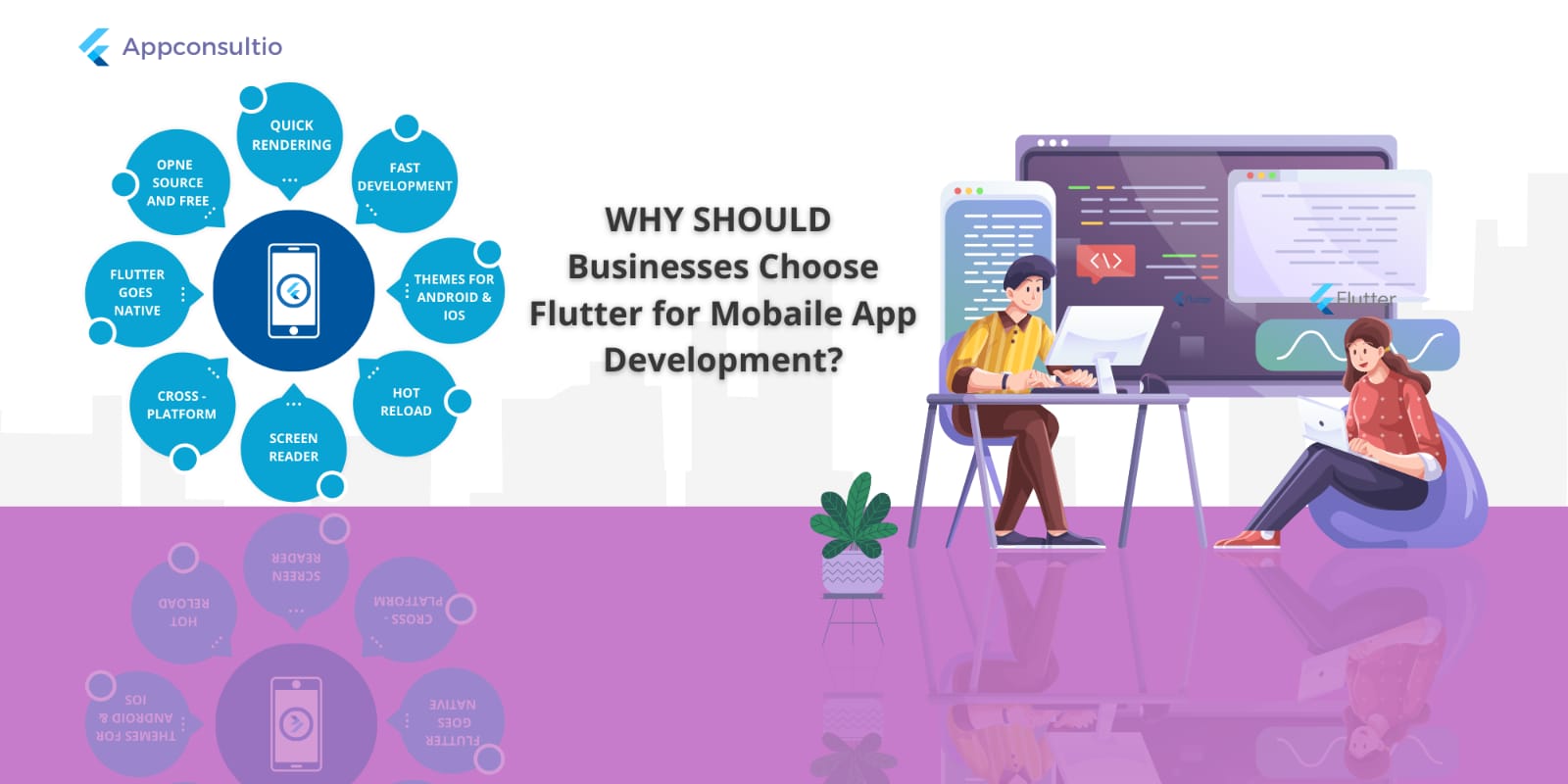
Flutter is a free and open-source mobile app development framework that can generate apps for iOS, Android, WebOS, and Windows.
App developers may use it to create apps for both iOS and Android. This technology offers us a lot of flexibility and growth. There is also an API that developers can use to publish their app to app stores.
APIs, or application programming interfaces, facilitate software development and innovation by permitting software to access data and services simply and safely.
Flutter is a mobile app SDK that incorporates libraries, documentation, code samples, methodologies, and guidelines for developers to use and implement into their applications. Flutter helps take advantage of the Dart programming language, which is simple to learn if you have already worked with Java or JavaScript.
Flutter apps are converted directly into native code because they are fast and responsive. As a result, it guarantees that you won't need to worry about your app working smoothly across platforms.
Additionally, it is scalable, enabling you to quickly add new features or change current ones without requiring a complete rewrite of your codebase.
There are many advantages of using Flutter to develop mobile apps. Some of these advantages are:
-Flutter is a very quick and responsive software application, which implies that users will appreciate using your app and will not be required to wait long for it to load or respond to their input.
-Flutter is simple to use and understand. In a nutshell, it is an excellent alternative for developers who are new to mobile app development and wishes to test out such an app idea.
-Flutter applications are indeed smooth and elegant. This is due to the high-quality graphics provided by Flutter. Your software will look amazing on iOS and Android smartphones.
-Flutter is open source and completely free to use. This means you can get started working with it without splurging. Furthermore, there is a significant developer community willing to assist you if you needed it.
Flutter vs Android Development
It is a fascinating discussion because both sides have advantages and disadvantages. On the one hand, Android is a tried-and-true platform with a massive user base and a thriving ecosystem of libraries and tools. Flutter, on the other hand, is younger, but it has several benefits that Android does not have.
Development Environment
Flutter uses Dart as its programming language which helps in building servers and desktop applications. Dart compiles to native code so you don’t need a separate VM like the Android Runtime (ART). Whereas Kotlin is meant to communicate extensively with Java, and its standard library is based on the Java Class Library, however, type inference allows for shorter syntax.
Dart programming language is used to create Flutter apps, which are, then converted into native code for iOS and Android.
User Interface
Flutter's user interface is equally based on Material Design, but it goes a step further with Cupertino widgets. These widgets are intended to appear and feel like iOS UI elements. This makes it simple to develop apps that look and feel like they belong on both iOS and Android.
Performance
Flutter's performance is one of its most significant advantages. Flutter apps run incredibly smoothly since they are compiled into native code.
There are various reasons why Flutter should be used for app development. It is an open-source platform that may be used for free. Furthermore, Flutter has a feature that allows developers quickly and easily test changes before sending them to production. This can save a substantial amount of time and worry when compared to alternative development platforms.
Flutter's cross-platform accessibility is yet another good reason to use it. As a consequence, developers might utilise a single codebase to create apps for both Android and iOS devices. In comparison to building separate apps for each platform, this could save a significant amount of time and effort.
Lastly, Flutter provides an excellent user experience owing to its Material Design widgets. These widgets ensure a uniform appearance and feel across all platforms, making it simple for users to browse your app regardless of platform.
Conclusion
Given its increasing popularity and acceptance by big organisations, there is no doubt that Flutter represents the future of mobile development. If you want to keep ahead of the competition, now is the time to create apps using this incredible software.